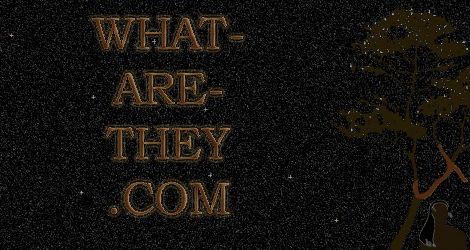Operation Awesome's own J Lenni Dorner is an author of fiction and reference. Thank you for the opportunity for an interview!
1. You just wrote a book on writing book reviews. Is there any instance in which you feel that a review or opinion of a work is invalid?
Yes, I did. The book is called “Writing Book Reviews As An Author: Inspiration To Make It Easier.” There are instances where a review would be invalid, such as if the reviewer was paid to say nice things. Or if a reviewer was intimidated by someone, which sadly has happened in online bullying.
Another issue faced, especially by writers, is how reviewing a book negatively could impact one's own standing in the writing community. There’s a real fear out there that your opinion could be “wrong” and the cyber-trolls will “call you out on it.” We need to realize that not everyone likes the same things. If reviews are respectful and the reasoning for the poor rating justifiable, then it deserves to exist. What one person dislikes about a book might be what others enjoy about it.

2. How do you feel about authors reading their own (Or even responding to) their own negative reviews?
Reading your own reviews is a learning opportunity. If several people mention your book has typos, it’s time to get a better editor. But if what they dislike is an opinion, that’s their right to feel that way. The most frustrating is when someone writes a review about something they misunderstood.
For example, if one writes a book about roses. Then a reviewer writes a negative review because they were dumped by someone named Rose. “This book doesn’t say why mean people are named after this flower!” That’s really hard not to engage. To not defend yourself with, “the book isn’t about that.”
It is best not to respond to those. It’s hard. Sometimes you have to just write a note to yourself or vent to a friend. What posts on the Internet never dies and someone will judge you for it.
3. What do you think are the advantages and disadvantages to readers receiving ARC’s and reviewing them on the Internet before a book’s release?
The disadvantage for writers is that giving away an Advanced Reader Copy means donating your work. That’s a sale you won’t get. And the reader might pass it out, which means another sale you won’t have. And it could be ripped to certain websites which break copyright laws. Plus, the reviewer might not get around to writing a review.
The advantage is that people are more inclined to buy a book that has been reviewed. So the trade-off for not making a sale with an ARC is the “advertising.” Plus, if the reviewer is a professional, they know to “market” their review by sharing it on social media. This helps to build up hype for a book. One study suggested that an average reader has to see a book online three times before they’ll consider buying it.
Another drawback of advanced reviews though is that some sites don’t allow them. So a reviewer might post a review to several places. But once the book is actually out, there’s no guarantee they’ll go back to the other spots to post there as well.
4. The first thing I thought of when I read the premise of “Preparing to Write Settings That Feel Like Characters” was your heritage. When I read the description and what was found in the Amazon sample, it deals with viewing the Earth (Or fantasy world) as a living being. Do you think the concept of treating settings like characters has any connection with your Native American background?
Great question. I do view our planet as being alive. And you might be right about my background being useful in this scenario. Actually though, I learned to harness this skill from years of RPG. That’s why I titled it as “Preparing to” instead of “How to,” because one has to approach creating that type of setting the same way as one does when making a character.
Writers have several different methods for creating characters. What I did was give some questions and ideas that could be used to create this additional “character” in a story. It’s the jumping off point for these deeper types of settings. But, fair warning, it isn’t a book about how to write settings. Dozens of those exist. It’s about taking a setting to another level so the story couldn’t possibly take place anywhere else.
Hogwarts is a character. Torrance High School is not a character, it’s an American high school that is recycled by Hollywood as a set under various names and places.
5. Can we expect more books in the Existence Series?
Absolutely! There’s a whole plan, including a high-fantasy series where a character will crossover and encounter other characters that mirror those of this urban fantasy. I’ve been working on book two and three for quite some time. There are some scenes in book two that need more punching up because they’re really powerful and important in ways that are difficult to show. But I’m working on it! Always working on it.
6. Do you prefer writing fiction or non-fiction?
I definitely prefer writing fiction as it’s more fun. But non-fiction comes out a lot faster. And I feel if I know how to do something well, and people have expressed a desire to learn it, I’m obligated to share my knowledge.
That is slipped into my fiction, too. For example, in Fractions of Existence, there’s a leveret instead of a bunny. In book two of the Existence series, there’s a “Romulus and Remus” celebration for the Fifteenth of February.
7. Do you have any advice for non-Native American people writing Native American characters?
Native American people are vast and diverse. There are many different tribes. A lot of history and culture was destroyed, especially with the Eastern tribes. The term “Indian-giver” is offensive, and portraying millions of people as swindlers is foolish.
And, hey, did you know…
Totem poles are a kind of statue, and statues are known for being permanent structures. Teepees/ tipis are a kind of tent. Tents are not permanent structures. That’s the sort of home for people who move around, migrating in a natural pattern.
Now, brace yourself because this is shocking -- the two don’t belong together.
While that sinks in, let me drop some more truth bombs:
Not every tribe had the same feathered headdress.
And they didn’t all speak the same language.
Or have the same religion.
Or use the same currency.
And the thousands of tribes didn’t all have names related to nature, like “Dancing Bear” and “Tree Tall.”
In fact, there were many tribes that never even met because North America is a huge landmass. Even if you divide it up into just America, it’s still a huge area of land. I have access to a car and airports and I haven’t seen it all. But some think a guy with his horse and buffalo traveled everywhere back in the day. I mean, really, come on.
And don’t forget that Native Americans were a big export when the slavers first came to this continent. (The survival rates were far lower.) The Emancipation Proclamation of 1863 only applied to humans. It wasn’t until 1879 that most Native Americans had their classification changed from animal to human. And in 1924 they were finally allowed to become citizens. (If you’ve seen “The Terminal,” picture it lasting about 450 years. Tom Hanks dying in that airport, but his great-great-great-great grandchild finally having citizenship with some country after a bunch of wars wrapped up.)
So my biggest tip is to do your research. Don’t just have a “Native American” character. Pick a tribe. Research that tribe. Stop writing characters who wear wooden shoes while eating spaghetti on an Eiffel Tower dining table to celebrate their Portuguese history on Defender of the Fatherland Day. (See how offensive that was?)
Yes, you can have a character with multiple backgrounds. Just don’t present the history and culture of several nations as being interchangeable. And remember that the Voting Rights Act is flawed, so check what state the person lives in to see what challenges voting might present to your character, if that comes up.
8. Lastly, because I ask this during every interview I conduct, what’s your favorite part about space?
I love the colors and size. https://apod.nasa.gov/apod That’s my “reward” site. When I feel I’ve accomplished a big task, I head over there for astounding images. Show me your planets and galaxies, the impossible clouds and dying stars. Yeah, that’s the stuff.






8 comments:
The part about writing book reviews is spot-on, and the insight about Native American tribes, and how you can't just toss random tribal elements together, that was good.
I would have thought that researching what and whom you are writing about would be a given. Though with some thought, I can indeed be guilty of the same thing. Thank you for the insights.
You like space so you must be as psyched as me about the photo of a black hole!
Okay, back to the book about writing reviews. I write reviews for books I enjoyed reading. Learning to write more comprehensive reviews sounded like a good idea. A review of your book states: if you’re looking for a book on how to write better, more thorough reviews, then this book won’t disappoint. It’s thorough, offers good examples, and covers a lot of points.
Perfect, as was the price. Thanks and I am looking forward to reading it!
http://gail-baugniet.blogspot.com/
(Theme: very short stories/varied genres)
Thank you, Tony.
You'd think so, 50Plus, but I've seen a lot of examples that prove it not to be true.
Gail, I really am. And also the guy from India that sorta landed on the moon. Hope you enjoy the book!
Doing research - proper research - is invaluable, even if the rabbit holes are tempting. I've reviewed a couple of ARCs when publishers have asked me to on the basis of other reviews. And I've been tempted to correct reviewers that accused me of knowing nothing about horses - I was an equestrian journalist. But I zipped my 'mouth'.
And maize is the right word for corn. Though corn just means the biggest crop in an area, or it use to.
Great interview!
"Another issue faced, especially by writers, is how reviewing a book negatively could impact one's own standing in the writing community. There’s a real fear out there that your opinion could be “wrong” and the cyber-trolls will “call you out on it.”"
Ugh yes, so true. I'm glad I've been able to stay away from the trolls so far...
Anna @ Deeply Shallow
Great interview. Personally, I do not feed Trolls. Much like Gremlins... And research is an absolute MUST -- no matter the genre.
Ronel visiting from the A-Z Challenge with Music and Writing: Great Music and Lyrics
Post a Comment